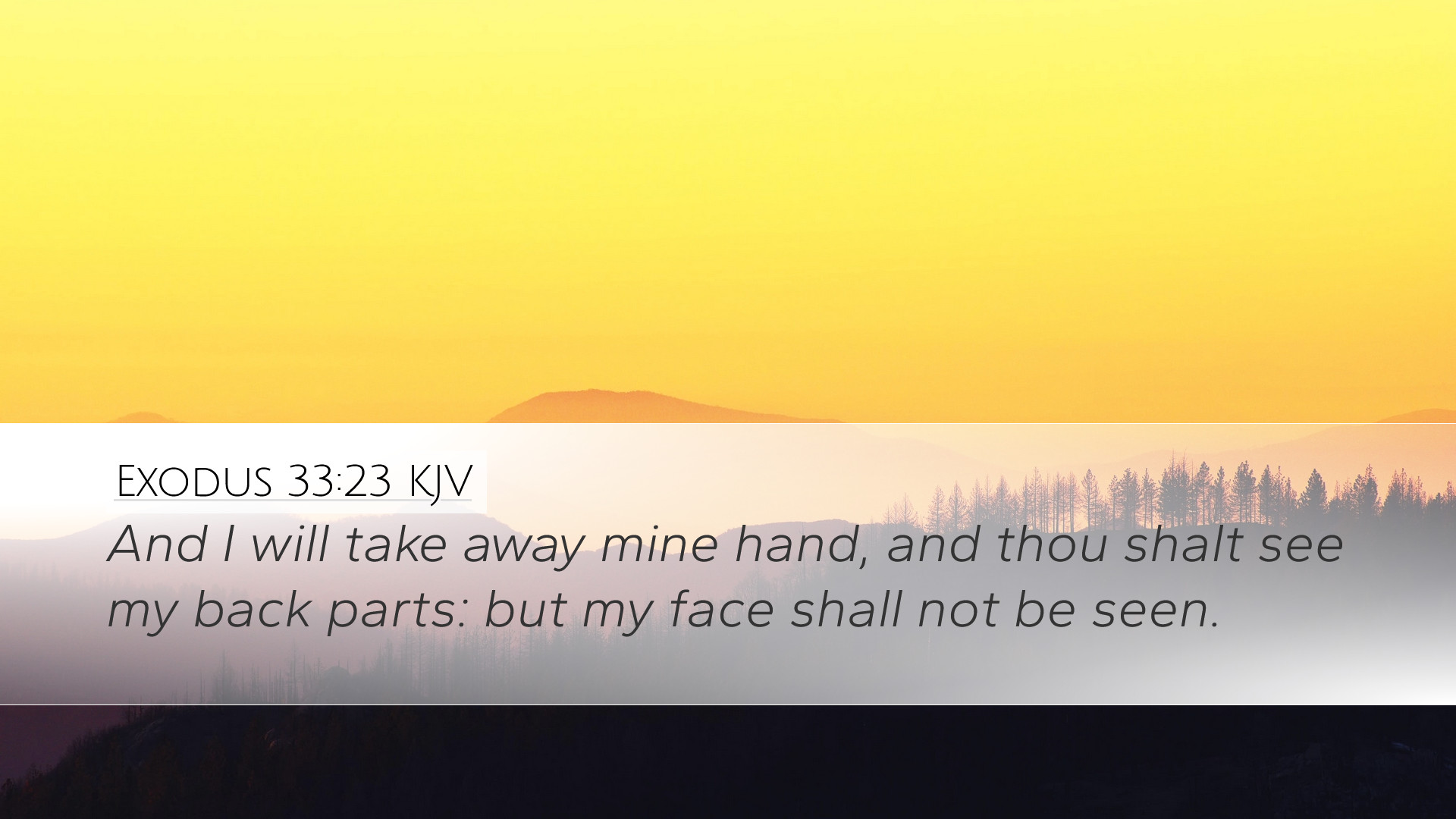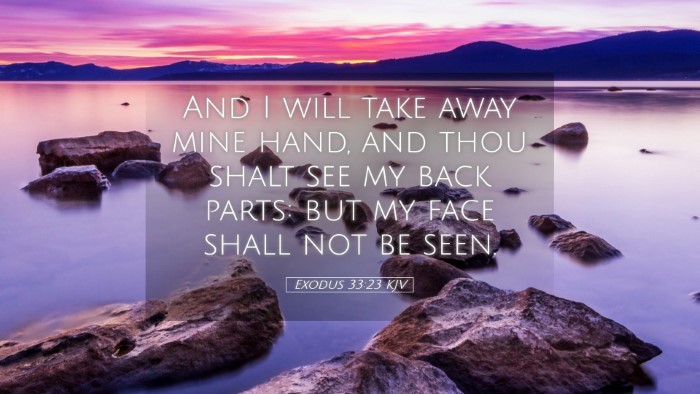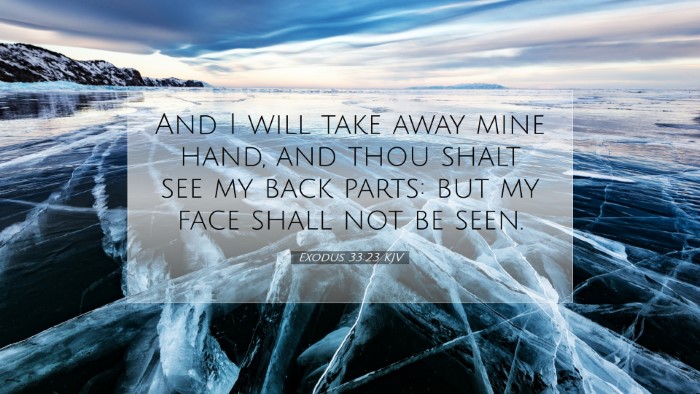Exodus 33:23 - Insights and Commentary
Bible Verse: "And I will take away mine hand, and thou shalt see my back parts: but my face shall not be seen."
Introduction
The verse of Exodus 33:23 presents a profound moment in the interaction between God and Moses. It serves as a crucial point for understanding the nature of divine glory and human limitations. This commentary compiles insights from several public domain sources, including Matthew Henry, Adam Clarke, and Albert Barnes, to explore the implications of this passage.
Moses’ Request to See God
Moses' desire to see God's glory is a theme explored thoroughly by biblical commentators. This request highlights both the intensity of Moses' relationship with God and the human longing for divine communion. As noted by Matthew Henry, Moses, who spoke with God face to face (Exodus 33:11), sought a deeper understanding of God's nature. Henry underscores that it reflects a desire for intimacy, indicating Moses’ longing to align with God's character and purposes.
Henry observes: “The request of Moses shows not only his desire but also his vast knowledge of God’s attributes.” This intimacy showcases a hallmark of Mosaic leadership—where connection with the divine is foundational to guiding God’s people.
The Nature of Divine Glory
In response to Moses’ request, God reveals significant truths about His glory and nature. Albert Barnes highlights that God’s "back parts" signifies a manifestation of glory that is veiled. This dimensional insight into God's nature reveals aspects of God that can align with human comprehension, ensuring that His divine strength and holiness remain unassailable. Barnes elucidates that seeing God’s face, or direct essence, would result in death because of the purity of God compared to human sinfulness.
Barnes remarks: “God's glory in its fullness is too overwhelming for humanity.” This acknowledgment pushes readers and scholars to consider the vast chasm between divine holiness and human frailty. It calls to mind passages like 1 Timothy 6:16, which speaks of God living in an unapproachable light.
Human Limitations in Encountering God
Another significant insight derived from this verse is the notion of human limitations in approaching the divine. Adam Clarke emphasizes that God's glory cannot be fully grasped by human beings. He proposes that the request made by Moses underscores the inadequacy of human perception when confronting the infinite divine. Clarke illuminates that God, in His love, accommodates human vulnerability while simultaneously protecting humanity from His consuming holiness.
Clarke comments: “This verse not only validates God's sovereignty but also underscores His providence in ensuring His creation understands their limitations.” Consequently, this serves as a reminder to believers of the need for humility and reverence before God.
Symbolism and Its Implications
The act of God covering Moses with His hand before revealing His back parts is rich in symbolism. Notably, it reflects a divine willingness to reveal enough of Himself to humans while guarding what is too sacred or holy. Matthew Henry interprets this gesture as a protective measure—indicating that God shields Moses from the full impact of His glory.
Henry emphasizes: “God’s hand serves as a shield against overwhelming glory, thereby demonstrating His caring nature towards humanity.” This indicates that divine revelation is selective and purposeful, aimed at developing faith and understanding in the believers.
Application for Modern Believers
This verse holds significant meaning for believers today. Firstly, it encapsulates the importance of seeking a deeper relationship with God, analogous to Moses’ yearning. Pastors and church leaders can draw on this as a model for leading congregations into deeper spiritual engagement with God.
Moreover, the acknowledgment of human limitations encourages humility. As God's people navigate through life’s challenges, recognizing the majesty of God serves to cultivate trust and dependence. Albert Barnes remarks that understanding our limitations enhances our appreciation for grace. Therefore, the idea of God selectively revealing Himself further invites worship and reverence among believers.
Conclusion
Exodus 33:23 opens not just a window into God's nature but also into the dynamics of how believers can relate to Him. As articulated through different public domain commentaries, the interplay of God's glory and human limitations creates a rich tapestry of theological exploration. For pastors, students, theologians, and scholars, these insights invite deeper reflection on God's nature and a cherished desire for communion with the divine.
Key Takeaways
- Moses demonstrates a heartfelt desire for intimacy with God, reflecting the essence of true faith.
- God’s glory, as interpreted through “back parts,” highlights the limitations of human understanding.
- Divine protection in revealing glory reminds us of the need for reverence before the Creator.
- Today's believers are called to humility and are encouraged to seek deeper spiritual understanding.
In summary, Exodus 33:23 serves as a profound reminder: that while we long for closer communion with God, we must also embrace the reality of His holiness and our need for His grace.


